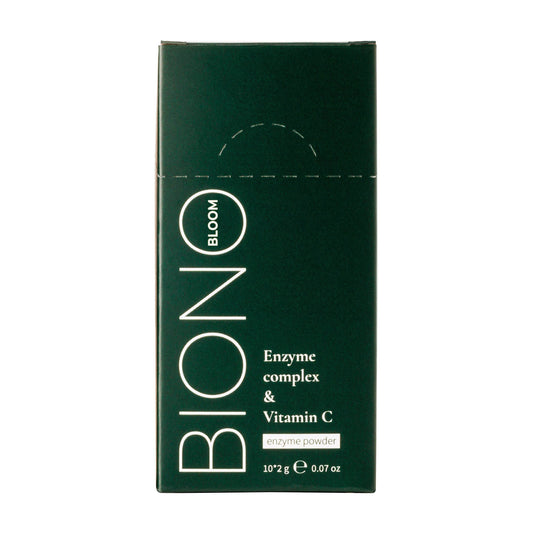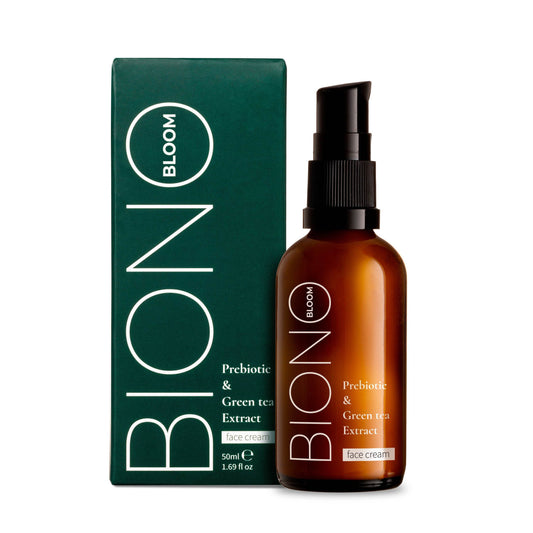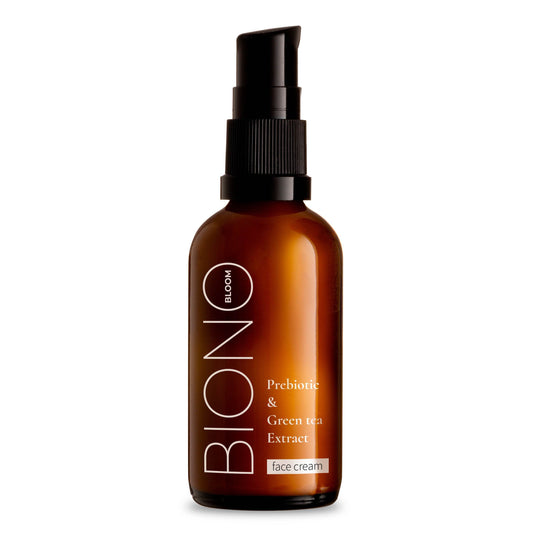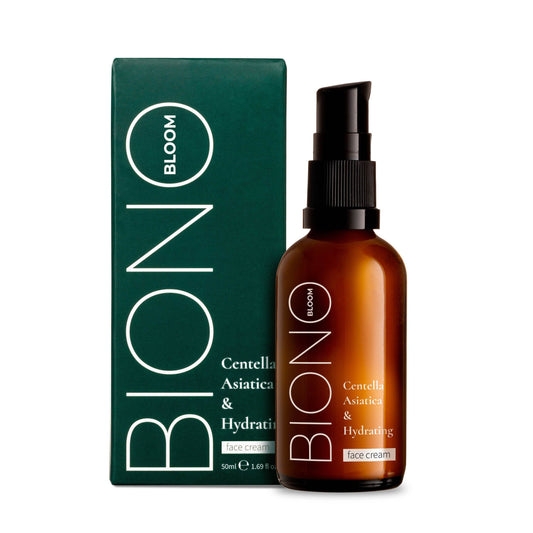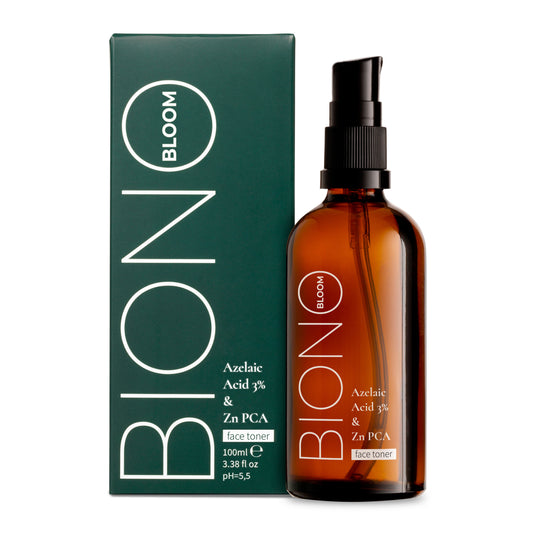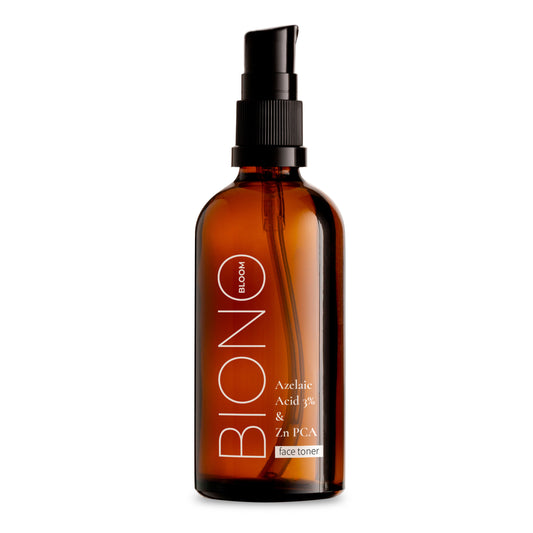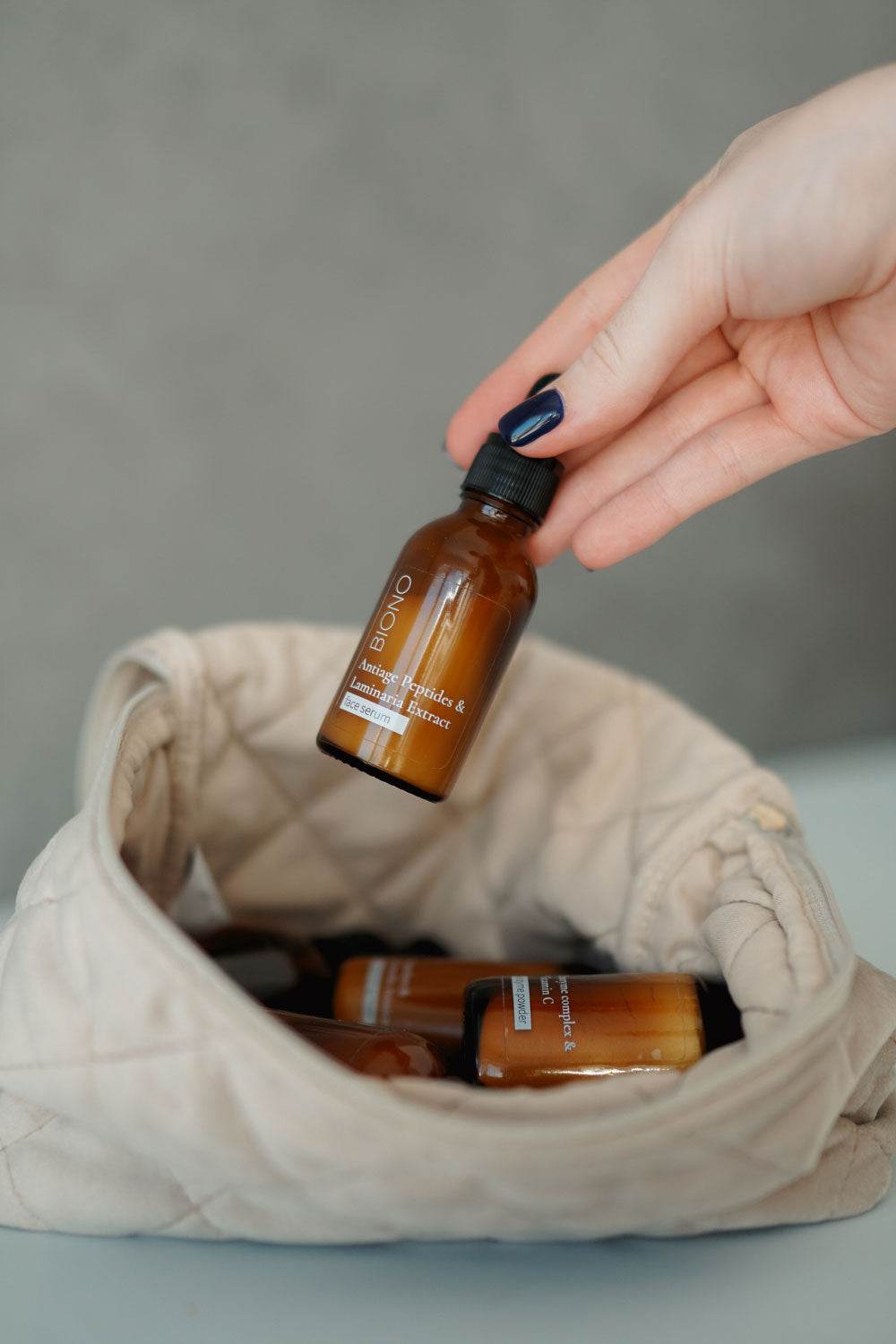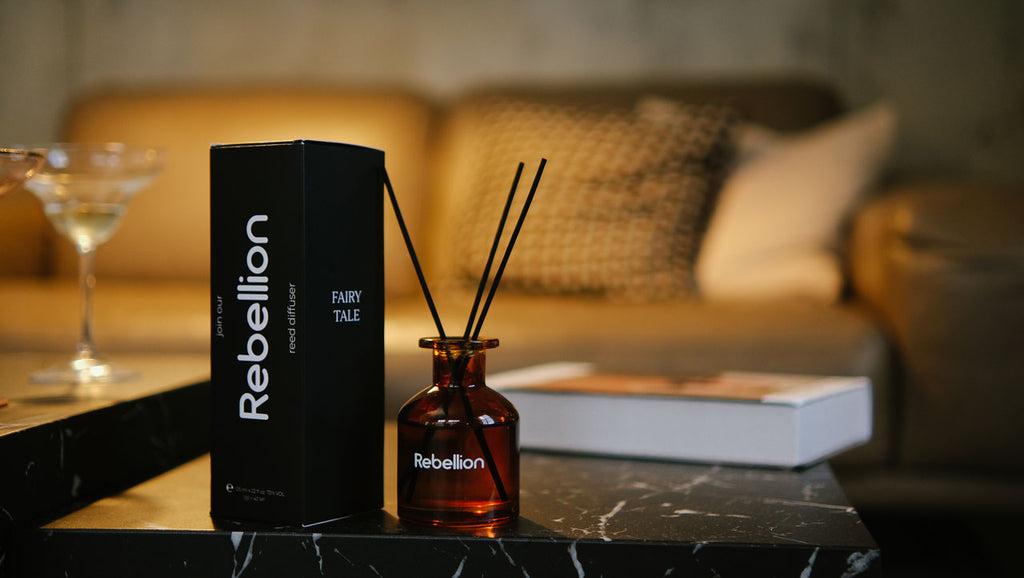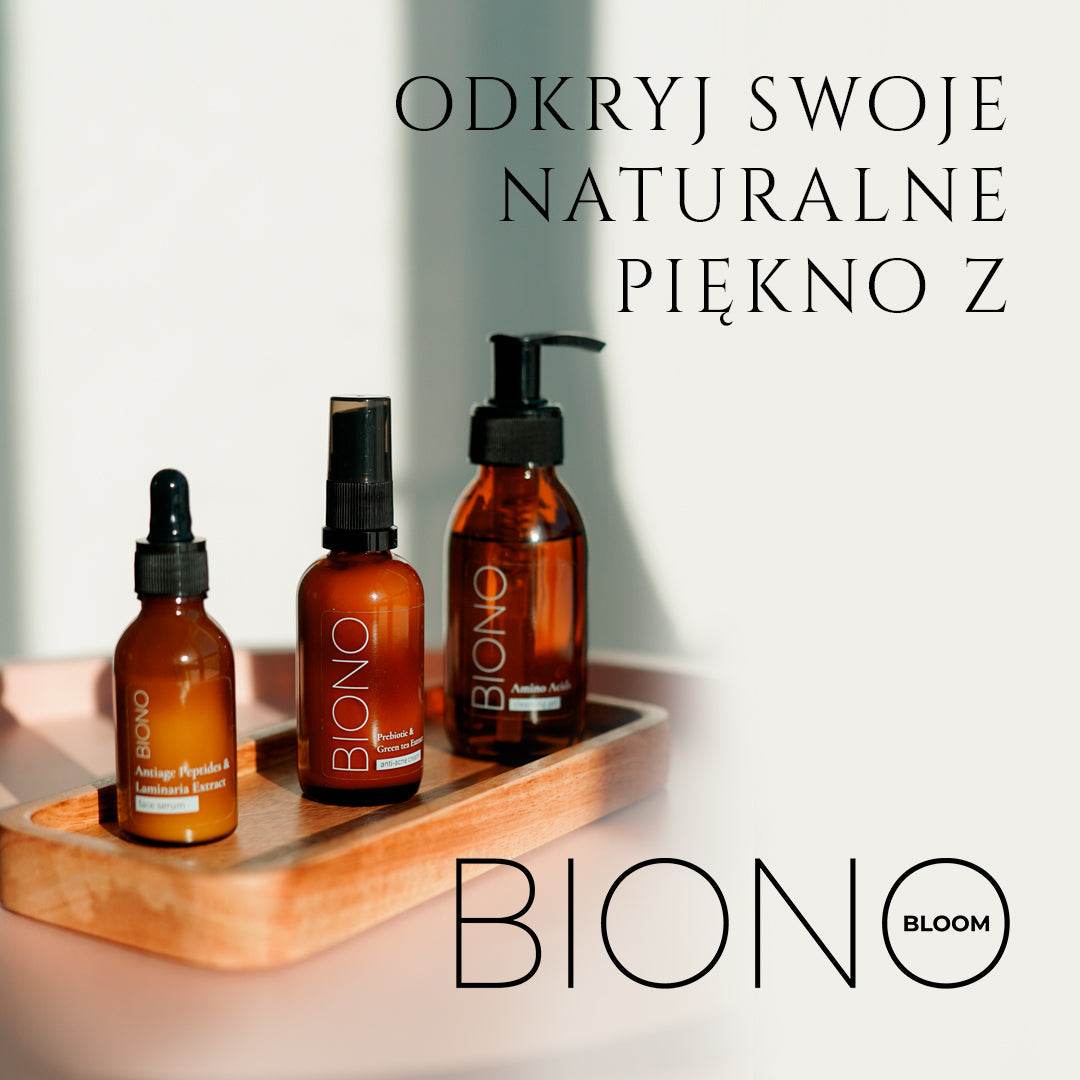
Mature skin care – a comprehensive guide
Skin over 50 is like your favorite silk blouse – it requires gentleness, attention, and the right products to maintain its radiance. Caring for mature skin isn't just a beauty routine, but above all, an investment in your well-being and self-confidence. In this article, we'll reveal the secrets to effective skincare that will keep your skin radiant and healthy, regardless of your age.
What are the characteristics of mature skin and why does it need special attention?
Mature skin undergoes natural changes, written into our biological code. After the age of 50, collagen production declines by up to 30%, and skin loses about 1% of its elasticity per year. It's like a lamp slowly dimming – a natural process, but one that can be slowed with proper care. Sebum production also decreases, making skin drier and more susceptible to irritation.
Caring for mature skin over 50 requires understanding that we're not fighting aging, but rather supporting the skin's natural regeneration processes. The epidermal structure gradually becomes shallower, and the protective barrier weakens, resembling a thin fabric that becomes more transparent over time. Therefore, it's crucial to provide ingredients that strengthen the skin's natural defenses.
Hormonal changes associated with menopause further impact skin condition – a drop in estrogen levels is like shutting off your main source of moisture. Skin can become more sensitive, prone to discoloration, and loss of firmness. This is the time when cosmetics for mature skin become not a luxury, but a necessity in daily care.

Makeup removal for mature skin – the foundation of the evening routine
Removing makeup from mature skin is a process that requires exceptional gentleness and precision. Imagine removing makeup from delicate velvet – every movement should be gentle and deliberate. The best makeup removers for mature skin are oil-rich milks or bi-phase liquids that don't require intense rubbing. Harsh cleansers can further weaken the already delicate protective barrier.
The makeup removal process should begin with the eyes and lips, where makeup is usually most intense. Use a soft cotton pad or a reusable pad, applying the product in gentle, circular motions. Remember, the skin around the eyes is 40% thinner than the rest of the face, so it deserves extra care. It's like gently touching a rose petal—never pull or stretch the skin.
After removing your makeup from your face, don't forget your neck and décolleté – these areas also require thorough cleansing. Removing makeup from mature skin is also a time for a lymphatic massage, which helps drain toxins and improve circulation. Finish the process with a light rinse with warm water or a soft towel. Never go to bed with makeup on – it's like leaving a window open during a storm; you're exposing your skin to unnecessary damage.
Cleansing mature skin – the key to effective care
Cleansing mature skin is much more than just washing your face – it's a ritual that prepares the skin to absorb valuable active ingredients. Choose products with a creamy or oily consistency that don't disturb the skin's natural pH. Bar soaps or foams with aggressive surfactants are like sandpaper to silk for mature skin – they can do more harm than good.
Morning cleansing should be gentle, as the skin has been working on regeneration all night and there's no need to remove its natural protective layer. Use a soft gel or milk, and if your skin is very dry, a simple rinse with thermal water will suffice. Evening cleansing for mature skin is more intensive – it's the time to thoroughly remove impurities from the day. The double cleansing method (oil, then gel) works perfectly, as does a two-step cleanup after a big party.
Water temperature is crucial – too hot dries out the skin, while too cold can cause broken capillaries. Lukewarm water is the golden mean, gently opening pores without damaging the lipid barrier. After cleansing, always use an alcohol-free toner, which will restore the proper pH and prepare the skin for subsequent care steps. It's like laying the foundation before building a house – without it, everything can collapse.

Cosmetics for mature skin – how to choose and what to pay attention to
Cosmetics for mature skin should be chosen with the same care as jewelry for an elegant dress – each element must complement the other and fulfill a specific function. Look for ingredients like retinol, vitamin C, hyaluronic acid, peptides, and ceramides. These substances are like a rescue team for the skin – each plays its own role in the rejuvenation and regeneration process. Retinol stimulates collagen production, vitamin C brightens and evens out skin tone, and hyaluronic acid acts like a sponge, retaining water in the skin.
Product consistency matters – after 50, skin needs richer textures than in its younger years. Creams with a higher lipid content are like a warm blanket on a cold day – they provide a feeling of comfort and protection. However, be careful not to overdo it: too heavy cosmetics can clog pores and cause problems. Ideal skincare for mature skin over 50 is a balance between nourishment and breathability, like a well-tailored suit – fitted but not tight.
Don't forget about specialized products for the eye area, neck, and hands—these areas often age faster than the rest of the face. An eye serum with caffeine and vitamin K is like an espresso for tired skin—it boosts energy and reduces puffiness. Regular use of cosmetics is more important than their price—the most expensive cream won't work if it sits in your cabinet instead of on your face.
Moisturizing and nourishing – two pillars of mature care
Mature skin care is based on two main pillars: hydration and nutrition, which act like water and sunlight for plants. Hydration is the delivery of water to skin cells through hygroscopic ingredients such as hyaluronic acid, glycerin, and urea. These substances attract water from the environment and retain it within the skin, like miniature water reservoirs. Without proper hydration, skin becomes like dry parchment – brittle and susceptible to damage.
Nutrition means providing lipids, vitamins, and active ingredients that support regeneration processes. Vegetable oils rich in omega fatty acids (argan, sweet almond, jojoba) are like a healthy diet for the skin—they provide it with everything it needs to function properly. Natural butters (shea, cocoa) create an occlusive protective layer that prevents transepidermal water loss. It's like an umbrella on a rainy day—protecting against external factors.
Basic rules for effective hydration and nutrition:
- Apply moisturizing serum to damp skin – active ingredients penetrate better
- Apply the nourishing cream within 3 minutes after washing your face, while your skin is still slightly damp.
- Use intensively moisturizing masks 2-3 times a week
- Drink at least 1.5 liters of water a day – hydration also works from the inside
- Use air humidification devices during the heating season
Sun protection – the most important step at any age
If I had to choose one product that every woman over fifty should use daily, it would be an SPF sunscreen. UV rays are like an invisible aggressor that attacks our skin every day, accelerating the aging process by 80%. Caring for mature skin without sun protection is like building a house without a roof—anything else is pointless. UVA rays penetrate deeply, destroying collagen and elastin, while UVB rays cause sunburn and discoloration.
Sunscreen with SPF 30 or higher should be the last step of your morning routine, applied to your entire face, neck, and décolleté. Don't skimp on the product—you'll need about a teaspoon of sunscreen to provide adequate protection. This isn't the time to be stingy, like with a good cup of tea—you need to use just the right amount to feel the effect. Modern mineral sunscreens with zinc oxide or titanium dioxide are gentle and won't burden mature skin.

Sun protection isn't just a summer necessity – UV radiation is present year-round, even through clouds and windows. In winter, when you're driving, your skin is still exposed to the rays. Cosmetics for mature skin with built-in SPF are a convenient solution, but remember to reapply every few hours when outdoors. It's like renewing your protective coating – it needs to be done regularly to be effective.
Specialized treatments and supplementation – additional support
Mature skin care for 50-somethings can be supported by professional treatments that act as a boost to your at-home routine. Hyaluronic acid needle mesotherapy is like deep hydration in a desert—it delivers active ingredients where they're needed most. Chemical peels with AHA or BHA acids gently exfoliate dead skin cells, stimulating cell renewal. It's like spring cleaning at home—cleaning out the old to make way for the new.
Diamond microdermabrasion and ultrasound treatments are non-invasive methods that improve skin texture and tone without a downtime period. Facial massages, especially kobido or gua sha techniques, are like yoga for facial muscles – they improve circulation, tighten, and lift without a scalpel. Regular visits to a cosmetologist allow you to adapt your care to your skin's changing needs, just as regular mechanic checkups keep your car in top condition.
Internal supplementation also plays a crucial role – collagen powder, biotin, and vitamins C and E support regenerative processes. It's like fertilizing plants from the roots – the effects are visible externally. Omega-3 fatty acids from fish oils improve skin elasticity and hydration from the inside. However, remember that supplements are a supplement to a healthy diet and proper skincare, not a replacement. A consultation with a dermatologist will help you choose the optimal solutions for your skin.
Daily routine – step by step to beautiful skin
Creating an effective skincare routine is like putting together a puzzle—every piece must fall into place. In the morning, start by gently cleansing mature skin with lukewarm water and a gentle cleanser. Then, apply an alcohol-free toner to balance the skin's pH. The third step is a vitamin C serum, which brightens and protects against free radicals—like a protective shield against environmental aggressions. Then, apply a moisturizer tailored to your skin's needs.
Evening care for mature skin is a time for intensive regeneration. After thoroughly removing makeup and cleansing, use a serum with retinol or peptides – these ingredients work best at night, when skin regenerates. It's like a night shift in a factory – the most important work happens while you sleep. A night cream should be richer and more nourishing than a day cream, giving skin everything it needs to regenerate.
Weekly care rituals:
- Enzyme peeling 1-2 times a week for gentle exfoliation
- Moisturizing or regenerating mask 2-3 times a week
- Facial massage with oil 3-4 times a week before bed
- A warm towel compress before applying the mask for better absorption.
- Special care for hands and neck at least once a day
Don't forget that consistency is more important than perfection. It's better to follow a simple routine every day than a complicated one every now and then. Cosmetics for mature skin will yield results after a few weeks of regular use – it's a marathon, not a sprint. Listen to your skin and adapt your care to its current needs, just as you change your wardrobe with the season.


